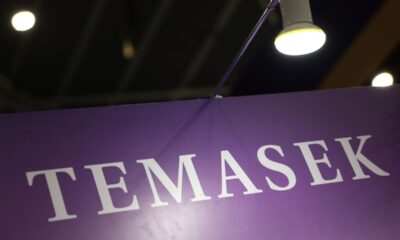News
Global fintechs and web3 giants join forces to scale up blockchain-based cash assistance for humanitarian crises
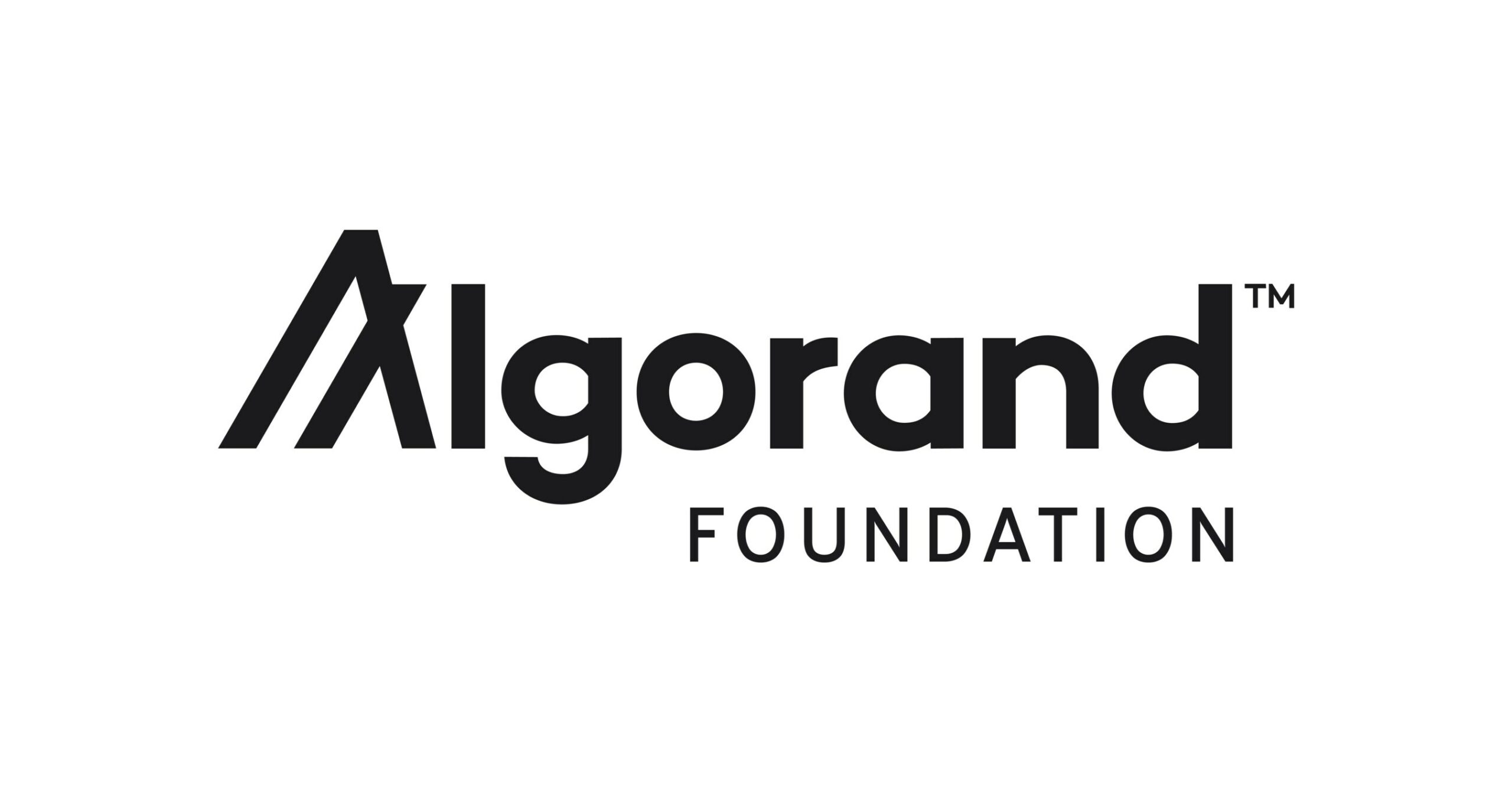
Humanitarian Council members include the Algorand Foundation, Circle, Worldpay, Mercy Corps Ventures, HesabPay, the United Nations Development Programme and others.
BARCELONA, Spain, June 26, 2024 /PRNewswire/ — Today, in a move led by the Algorand Foundation, a coalition of fintech, web3 and humanitarian organizations announced the formation of a council that seeks to increase access to blockchain-based cash assistance during humanitarian crises. The goal of the council, among other activities, is to advise UN agencies and NGOs on the use of blockchain technology for aid payments and to develop a roadmap for successful piloting of cash programs based on blockchain in areas in difficulty.
Over the past decade, the United Nations and NGOs have begun to offer more cash assistance (versus in-kind assistance or services). According to CALP NetworkA leader in cash and voucher-based humanitarian assistance, this form of assistance now comprises 21% of all international humanitarian aid, reaching $10 billion in 2022, and this share could potentially be much higher (source). Humanitarian organizations are working to deliver this type of aid as quickly and cost-effectively as possible, while navigating increasingly complex financial regulations. With this in mind, projects under the purview of this council will explore the potential benefits and opportunities of blockchain-based payment solutions in addressing these particular constraints.
The purpose of using blockchain is primarily to compensate for the lack of financial and technological infrastructure in humanitarian locations such as Afghanistan and others. In these regions, the application of blockchain technology could bring greater efficiency and ease in the delivery of cash aid, making it possible to respond on an even larger scale.
Scaling up cash aid also requires transparency. Cash aid programs must be traceable and verifiable without violating the rights of recipients. Using blockchain, organizations can maintain an immutable, unchangeable record of how money has been distributed, without revealing how it is being used by the recipient. This model protects the privacy of those in crisis while maintaining the traceability and verification that aid programs, donors, and governments need.
Powered by Algorand, global payment app HesabPay is already demonstrating the power of merging blockchain and aid delivery. It is facilitating the world’s largest humanitarian project ever run on a public blockchain, supporting more than 14,000 families in Afghanistan in partnership with the United Nations World Food Programme (WFP) and supported by the WFP Innovation Accelerator.
Bernhard Kowatsch, head of the WFP Innovation Accelerator, added: “The success of HesabPay in Afghanistan highlights the significant impact and scalability of this technology. We are eager to scale these innovations globally to revolutionize aid distribution.”
“Cash-based direct humanitarian assistance has grown rapidly and is the future due to the extraordinary benefits that cash offers to recipients. To be effective, humanitarian payments must meet several requirements: immediate settlement, easily scalable to thousands if not millions of recipients, and transparent and traceable,” said Matt Keller, director of impact at the Algorand Foundation. “Blockchain meets all these needs and is one of the reasons we invested in HesabPay, which provides humanitarian aid payments in Afghanistan without sacrificing time or liability.”
“At Circle Impact, our mission since 2021 has been to empower underserved communities and reach people who have traditionally been excluded from financial systems. We are excited to be part of the Humanitarian Council, where we can cultivate a new generation of inclusion financial aid to scale up humanitarian aid and disaster relief,” said Mercina Tillemann-Perez, Vice President of Circle Impact.
“Launching 16 cryptocurrency pilots in over 10 countries over the past 4 years, Mercy Corps Ventures has actively implemented one-of-a-kind real-world use cases in the humanitarian and development context leveraging blockchain technology. We are now building a Humanitarian Venture Lab with a pipeline of humanitarian pilots, use cases and insights that show where the challenges Algorand Foundation is addressing are manifesting and being solved in real time,” said Sandra Uwantege Hart, head of the Humanitarian Venture Lab at Mercy Corps Ventures .
“Humanitarian crises require faster, more transparent aid solutions. Blockchain technology has the potential to revolutionize aid distribution through unparalleled traceability. If this initiative can match the speed and efficiency of the 40 billion transactions that Worldpay processes every year, there is an opportunity to provide life-saving support to millions of people facing humanitarian crises, ensuring that funds reach those in need without delay,” said Ahmed Zifzaf, head of crypto/web3 partnerships for Worldpay.
“At UNDP, we are exploring with Algorand how digital payments can bring transparency, making payments with greater speed and trust to support lives in countries without a strong banking ecosystem. Particular attention is being paid to supporting the work of civil society organisations, such as through our Tadamon network of 4000 CSOs,” said Robert Pasicko, Innovation Team Leader at UNDP.
The current members of the board are:
- Sandra Uwantege Hart, Head of Humanitarian Venture Lab at Mercy Corps Ventures
- Mercina Tillemann Perez, Vice President, Circle Impact at Circle
- Paula Gil Baizan, PoliSync Center for International Political Engagement
- Ahmed Zifzaf, Head of Crypto/Web3 Partnerships at Worldpay
- Hasan Fallaha, Livelihoods and Economic Recovery Programme Analyst at UNDP Syria
- Ali Theyab Al-Zuhairi, Economic Reform Project Coordinator (FFER-FED) at UNDP Country Office in Iraq
- Robert Pasicko, Innovation Team Leader ai, United Nations Development Programme (UNDP)
- Henri de Jong, Director of Business Development at Quantoz
- Rory Crew, technical advisor on data and digitalisation at the CALP network
- Nigel Pont, Senior Consultant at HesabPay
- Suzana Moreno, Head of Strategy and Project Portfolio for Blockchain Technology at WFP Innovation Accelerator
- Kelly Stablein, Independent Humanitarian Advisor
About the Algorand Foundation
Algorand’s mission is to power a world where information has integrity and innovative ideas can scale. The Algorand Foundation supports the rapidly growing Algorand ecosystem by providing a best-in-class development environment, supporting key infrastructure and defining technical standards, offering comprehensive support to builders and entrepreneurs, and providing the infrastructure for decentralized governance.
Founded by Turing Award-winning cryptographer Silvio Micali in 2019, Algorand has grown into a vibrant ecosystem of developers, entrepreneurs, and corporate partners who benefit from institutional-grade certainty and resilience, while features like low fees, instant finality, and a minimal of carbon emissions The footprint also appeals to the protocol’s millions of retail users. Builders of all types can use common programming languages like Python to develop advanced apps and protocols that solve important problems on a global scale: instant payments in war zones and disasters, self-sovereign identity for the disenfranchised, chain tracing supply for global trade, permissionless protocols addressing financial inclusion, and the creation of entirely new markets through tokenization, to name a few. To learn more and begin your Algorand journey, visit algorand foundation.
About Circle
Circle is a global financial technology company that enables businesses of all sizes to harness the power of digital currencies and public blockchains for payments, commerce, and financial applications around the world. Circle is the issuer of USDC and EURC, highly liquid, interoperable, and trusted currency protocols on the Internet. Circle’s open, programmable platform and APIs make it easy for organizations to run their businesses at Internet scale, whether they’re making international payments, building globally accessible Web3 apps, or managing their internal treasury. Learn more about Italian: https://circle.com.
About HesabPay
HesabPay is a global payment app pioneering global financial inclusion, serving the 2 billion unbanked people around the world. With exponential growth, HesabPay now boasts over half a million users, facilitating $35 million in peer-to-peer (P2P) transfers monthly. The platform serves 250,000 households in managing utility bill payments and supports over two dozen donors in distributing humanitarian cash assistance. HesabPay’s impact is evident in its expansive reach and the vital financial lifeline it provides. Discover the full range of HesabPay services at hesab.com.
About Mercy Corps Ventures
Mercy Corps Ventures invests in and catalyzes venture-led solutions to increase the resilience of underserved individuals and communities. Founded in 2015 as the impact investing arm of global development agency Mercy Corps, we have supported 50 early-stage ventures to scale and raise over $465 million in follow-on capital. 44% of our portfolio has at least one female co-founder and focuses on climate adaptation and resilience-building solutions in adaptive agriculture and food systems, inclusive fintech, and climate-smart technologies so those living in frontier markets can withstand disruption and plan for the future. Through capital and support, pioneering new approaches, action-oriented insights, and rigorously managing impact, we catalyze the ecosystem toward smarter, more impactful investing. Learn more about www.mercycorpsventures.vc.
About Worldpay
Worldpay is a leading payment technology and solutions company with unique capabilities to power omni-commerce worldwide. Our processing solutions enable businesses of all sizes to accept, make and manage payments in person and online from anywhere in the world. We process over 40 billion transactions each year across 146 countries and 135 currencies. We help our customers become more efficient, more secure and more successful.
SOURCE Algorand Foundation
News
Blockchain Technology Will Transform Water Access and Management Globally

Disclosure: The views and opinions expressed here are solely those of the author and do not represent the views and opinions of the crypto.news editorial team.
Access to clean water is a basic human need, yet billions of people around the world still struggle to get it. According to the World Health Organization, over 2 billion people live in countries suffering from severe water stress, and this number is expected to continue to grow due to climate change and population growth.
Traditional water management systems have struggled to address these challenges, often hampered by inefficiencies, lack of transparency, and misallocation of resources. Blockchain technology offers a promising solution to these challenges, providing equitable access and sustainable use of this crucial resource.
The current state of water management
Water management today faces several pressing issues. Inefficiencies in water supply, distribution, and use, coupled with a lack of real-time monitoring, often result in resource waste and misallocation. Many water sources fail to realize their full potential due to infrastructure and financing shortfalls. For example, the Environmental Protection Agency (EPA) report indicated that the United States would need to invest $625 billion over the next 20 years to repair, maintain and improve the country’s drinking water infrastructure due to aging pipes and other infrastructure problems. Additionally, in the United States alone, household leaks can to waste nearly 900 billion gallons of water per year nationwide. This is equivalent to the annual domestic water consumption of nearly 11 million homes.
Furthermore, corruption and mismanagement of water resources can cause unequal distribution, with disadvantaged communities often bearing the brunt of water scarcity. For example, South Africa is struggling with myriad challenges to its water security: drought, inadequate water conservation measures, outdated infrastructure, and unequal access to water resources. The country faces significant water scarcity, with demand expected to outstrip supply by 2030, creating a projected gap of 17%.
Furthermore, the global water industry is highly monopolized, with a few key players controlling a significant share of the market. These companies exert substantial influence over the water supply chain, often prioritizing profit over equitable distribution and environmental responsibility. This concentration of power can lead to inflated prices and limited access for vulnerable populations. The global bottled water market alone is projected to reach $509.18 billion by 2030, with these large companies capturing a significant share of revenue. This monopolization exacerbates existing inequalities in water access and highlights the need for more decentralized and community-driven water management solutions.
Source: Grand View Search
The potential of blockchain in water management
Blockchain technology can address these issues by providing a transparent, secure, and decentralized platform for water resource management. This approach offers several advantages:
- Transparency and accountability. Blockchain’s immutable ledger ensures that all transactions and data entries are transparent and cannot be changed once recorded. This transparency can reduce corruption and ensure that water resources are allocated fairly and efficiently. For example, blockchain can be used to track water usage from source to end user, providing a clear record of how water is distributed and used. This level of transparency can help hold authorities accountable and manage water resources sustainably.
- Efficient resource management. Blockchain can facilitate the creation of smart contracts, which are self-executing contracts with the terms of the agreement written directly into the code. These contracts can automate water distribution based on real-time data, directing water to where it is needed most. For example, smart contracts could be used to manage urban water supply systems, automatically adjusting water distribution based on real-time consumption patterns and demand. This can help optimize water use, reduce waste, and ensure that households and businesses receive the right amount of water at the right time.
In Dubai, the Dubai Electricity and Water Authority (DEWA) has implemented a blockchain-based smart water network initiative as part of its broader smart city strategy. This project integrates blockchain technology with IoT sensors to monitor water usage in real time, manage distribution, and detect leaks. The decentralized ledger ensures data integrity and transparency, enabling more efficient water management and reduced waste. DEWA’s initiative aims to improve sustainability and resource management in the rapidly growing city, highlighting the potential of blockchain to support urban water management and conservation efforts.
Community participation and ownership
Through blockchain, individuals can directly control and monetize their access to water resources, eliminating the need for third-party intermediaries. This direct control model allows local communities to make collective and transparent decisions about their water use. By managing their water directly from the source, communities can tailor water management practices to their specific needs, promoting equitable distribution and encouraging a sense of accountability and stewardship.
Additionally, future models could allow people to monetize their access to water through web3 technologies. For example, a community-to-business (C2B) model could allow people to sell water directly to companies. In this model, people do not have to own the water directly, but can profit by staking their tokens during event sales pools. This approach not only supports sustainable water management, but also creates economic opportunities for community members. Additionally, a “Burn to Secure” protocol can be used to provide water allocation rights. This protocol provides a true sense of water security and financial opportunity by allowing people to redeem their rights. This system not only secures future water allocations, but also increases token scarcity and value.
Additionally, a pure sense of investment is achieved through investments in water sources. This leads to potential financial returns and dividends by addressing the inefficiencies in water supply mentioned above. By investing to finance infrastructure projects, such as building factories and improving distribution systems, more water can be brought to communities, creating additional economic opportunities.
Monetizing water access through the C2B model, the “Burn to Secure” protocol, and investments in water sources all generate economic benefits for the community, promoting a more equitable and efficient water management system.
Overcoming challenges
While blockchain technology has the potential to improve water management, there are challenges to its adoption. The complexity of blockchain systems and the need for technological infrastructure can be barriers, especially in developing regions. Additionally, there are concerns about the significant energy consumption of blockchain networks. However, technological advances and the development of more energy-efficient blockchain solutions are helping to alleviate these concerns. Additionally, education and capacity building are key to ensuring stakeholders understand how to effectively use blockchain technology. Governments, NGOs, and private sector partners need to work together to provide training and support to communities and water management authorities.
Blockchain technology offers a practical and effective means to improve water management. In addition to addressing inefficiencies, blockchain empowers communities, promotes sustainable practices, and opens up new economic opportunities through models like community-to-business (C2B). As we face the growing challenges of climate change and population growth, blockchain is not only an innovative solution, but represents a fundamental shift in the way we manage and value water resources. Adopting blockchain in water management is essential to creating a sustainable and equitable future by changing the way we interact with and protect our most vital resource.

Jean-Hugues Gavarini
Jean-Hugues Gavarini is the CEO and co-founder of LAKE (LAK3), a real-world asset company leveraging blockchain technology to decentralize access to the global water economy. LAKE aims to ensure access to clean water for all, protect water resources, and deliver water to those in need through innovative technologies. Jean-Hugues has a diverse career spanning the luxury, fashion, and footwear industries. His career path includes notable successes at Mellow Yellow, Cremieux, and Tod’s. Raised between Silicon Valley and the French Alps, Jean-Hugues has always been immersed in technology and freshwater resources. In 2018, Jean became the CEO of Lanikea Waters, a water solutions entity based in the French Alps. In 2019, the concept of LAKE was born, embodying his commitment to innovation and sustainability.
News
Blockchain and AI Expo 2024
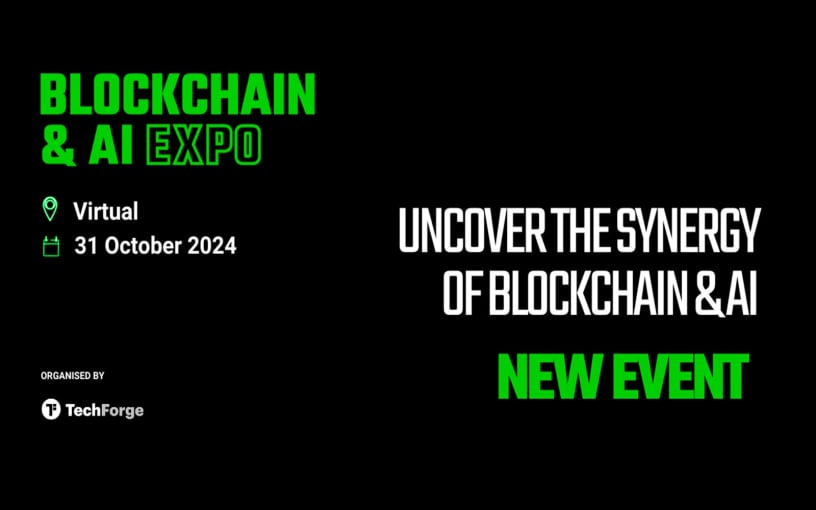
With rapid advances in the world of AI and blockchain, there are opportunities to leverage the security and transparency features of blockchain to improve the reliability and trust of AI systems and data transactions.
Explore the synergy of these advanced technologies in virtual mode Blockchain and AI Expowhich takes place on October 31, 2024 TO 10:00 GMT.
The event features cutting-edge presentations led by leading experts in evolving fields. Presentations are set to explore opportunities and challenges in the fusion of blockchain and AI, real-world applications, ethics, innovations in environmental sustainability, and more!
Gain a comprehensive understanding of how these technologies can synergistically drive innovation, optimize operations, and promote strategic growth opportunities. Develop your knowledge to facilitate informed decision making and give your company a competitive edge in the growing technology landscape.
News
Nigeria Eyes National Blockchain Nigerium for Data Sovereignty
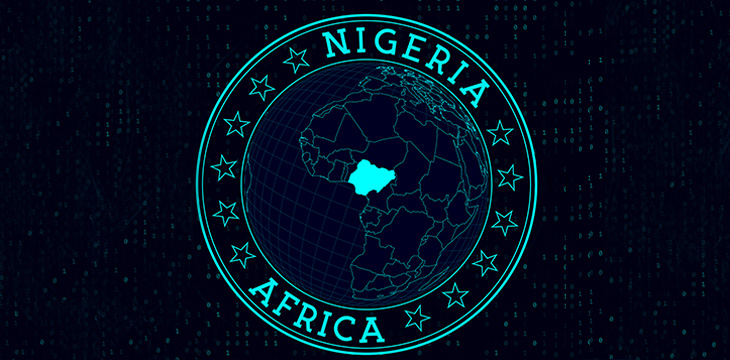
Nigeria is keeping an eye on a new native blockchain network to protect the country’s data sovereignty.
According to local media, a team from the University of Hertfordshire has proposed the new blockchain, Nigeriato the National Information Technology Development Agency (NITDA).
Chanu Kuppuswamy, who leads the team, argued that relying on blockchain networks whose developers are located in other regions poses national security risks to the Nigerian government. He further said that Nigerium would allow the West African nation to customize the network to meet specific needs, while also promoting data sovereignty.
In his presentation, Chanu cited the recent migration of Ethereum to test of participation (PoS) consensus as an instance in which no Nigerians were involved but whose impact is far-reaching.
“Developing an indigenous blockchain like Nigerium is a significant step towards achieving data sovereignty and promoting trust in digital transactions in Nigeria,” he said.
While receiving the proposals in Abuja, NITDA’s Kashifu Abdullahi acknowledged the benefits a local blockchain would bring to Nigeria, including increased security of citizens’ data.
However, a NITDA spokesperson later clarified that Nigerium is still at the proposal stage and that the government has not yet decided whether to proceed or not.
“The committee is still discussing the possibility with stakeholders. Even if a decision is finally made, there is no guarantee that the name will be Nigerium,” the spokesperson told the media.
Nigerium’s reception in the country has been mixed. Some, like financial analyst Olumide Adesina, To say the network is “dead on arrival”. He believes the Nigerian government’s poor record in following through on its big technology plans will claim another victim. He pointed to the eNaira as a missed opportunity whose chances of success were much higher than those of Nigerium.
Others welcomed the proposal. Chimezie Chuta, who chairs the renewed The Nigerian Blockchain Policy Committee is “extremely optimistic“that Nigerium will be more successful than eNaira.
Speaking to a local news agency, Chuta stressed that eNaira failed because the central bank initiated the project on its own, without involving any stakeholders.
“They just cooked it and expected everyone to like it. [With Nigerium]there will be a lot of collaboration,” he said.
Registration of property title, digital identity and Certificate Verification are among the use cases that Nigerium is expected to initially target. However, Nigeria has already made progress in some of these fields through public blockchains.
SPPG, a leading school in governance and politics, announced in May the country’s first blockchain certificate verification system. Built on the The BSV BlockchainIt was developed in collaboration with the blockchain data recording company VX Technologies and local lender Sterling Bank.
Watch: The Future Has Already Arrived in Nigeria
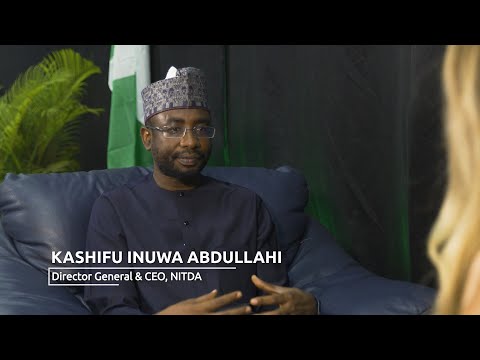 Italian: https://www.youtube.com/watch?v=M40GXUUauLU width=”560″ height=”315″ frameborder=”0″ allowfullscreen=”allowfullscreen”>
Italian: https://www.youtube.com/watch?v=M40GXUUauLU width=”560″ height=”315″ frameborder=”0″ allowfullscreen=”allowfullscreen”>
New to blockchain? Check out CoinGeek Blockchain for Beginners section, the definitive guide to learn more about blockchain technology.
News
Cambodian CBDC Developer to Build Palau Bond Market on Blockchain: Report

A Japanese fintech developer will build a blockchain-based bond market gateway for Palau, aiming to launch a trial in 2024 and a full launch the following year.
Japanese fintech developer Suramitsubest known for developing a central bank digital currency (CBDC) for Cambodia, is intended to build a Blockchain-gateway to the bond market based on the Pacific island nation of Palau, Nikkei He learned.
Soramitsu won the contract and plans to introduce the market on a trial basis in fiscal 2024, with a full launch scheduled for the following year, allowing the Palauan government to issue bonds to individual investors and efficiently manage principal and interest payments, according to the report.
The total cost of the project is estimated at several hundred million yen ($1.2 million to $5.6 million), less than half the cost of a non-blockchain alternative, people familiar with the matter said. The project has reportedly received support from Japan’s Ministry of Economy, Trade and Industry, with Japan’s foreign and finance ministries providing strategic and management advice on the project.
Soramitsu’s successful development of Cambodia’s CBDC in 2020 has boosted its reputation, with the digital currency’s popularity soaring, with over 10 million accounts opened by December 2023, representing 60% of Cambodia’s population. Following this, Cambodia’s central bank governor Chea Serey indicated intends to expand the reach of its CBDC internationally, particularly through collaboration with UnionPay International, the Chinese card payment service, and other global partners.
While Soramitsu’s work in Cambodia has been well received, the long-term popularity of CBDCs remains to be seen. As of late June, crypto.news reported a sharp drop in activity in India’s digital currency, the e-rupee, after local banks stopped artificially inflating its values.
According to people familiar with the matter, the Reserve Bank of India managed to hit the 1 million retail transaction milestone last December only after the metrics were artificially infiltrated by local banks, which offered incentives to retail users and paid a portion of the bank’s employees’ salaries using the digital currency.
-

 News1 year ago
News1 year ago“Captain Tsubasa – RIVALS” launches on Oasys Blockchain
-

 Ethereum1 year ago
Ethereum1 year agoComment deux frères auraient dérobé 25 millions de dollars lors d’un braquage d’Ethereum de 12 secondes • The Register
-

 News1 year ago
News1 year agoSolana ranks the fastest blockchain in the world, surpassing Ethereum, Polygon ⋆ ZyCrypto
-

 Videos1 year ago
Videos1 year agoHistoric steps for US cryptocurrencies! With a shocking majority vote!🚨
-

 Videos1 year ago
Videos1 year agoIs Emorya the next gem💎 of this Bitcoin bull run?
-

 News1 year ago
News1 year agoSolana Surpasses Ethereum and Polygon as the Fastest Blockchain ⋆ ZyCrypto
-

 Videos1 year ago
Videos1 year agoNexus Chain – Ethereum L2 with the GREATEST Potential?
-

 Ethereum1 year ago
Ethereum1 year agoScaling Ethereum with L2s damaged its Tokenomics. Is it possible to repair it?
-

 News1 year ago
News1 year agoFnality, HQLAᵡ aims to launch blockchain intraday repositories this year – Ledger Insights
-
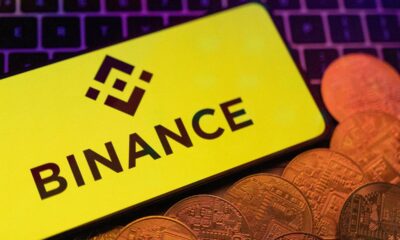
 Regulation1 year ago
Regulation1 year agoFinancial Intelligence Unit imposes ₹18.82 crore fine on cryptocurrency exchange Binance for violating anti-money laundering norms
-
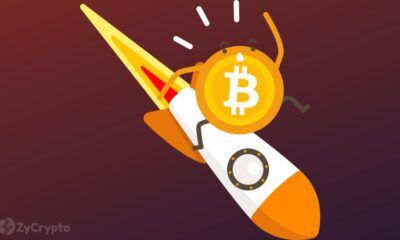
 Bitcoin1 year ago
Bitcoin1 year agoBitcoin Drops to $60K, Threatening to Derail Prices of Ether, Solana, XRP, Dogecoin, and Shiba Inu ⋆ ZyCrypto
-

 Videos1 year ago
Videos1 year agoRaoul Pal’s Crypto Predictions AFTER Bitcoin Halving in 2024 (The NEXT Solana)





